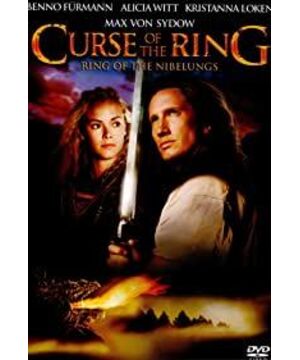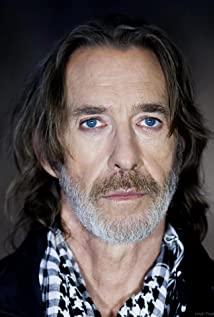I wrote it during my homework last semester. The Ragnarok of the Gods: Three Levels of Destiny from "Ring of the Nibelung" [2011-5-3] 【Abstract】This paper discusses the fate of man through the analysis of the film "Ring of the Nibelung" , God's control, God's fate, the three levels of fate, and finally return to the discussion of fate and the human condition. Catalog 1. Background and plot introduction of the film 1. Nordic mythological background 2. The main plot of the film 2. See the fate of gods and people from this film 1. The fate of people - dragon slayer and Valkyrie (1) Destiny (2) Looking at the characteristics of destiny from the perspective of Qi Fei's life (3) Brunhill's destiny (4) Destiny explains the difficulties caused by everything God's Twilight III. Summary 1. Review 2. My point of view 1. Film background and plot introduction 1. Nordic mythological background The prototype of this film is the fourth part of Wagner's opera "Song of the Nibelung" in the 19th century" Ragnarok of the Gods", and this opera was created by Wagner and other people at that time after collecting ancient Germanic mythology. Therefore, the whole film is based on the ancient Norse mythology system. In the Norse mythology system, just as everyone faces old age and death, the gods also face a fate called "Regaruk", which is the destruction of the world called "Ragnarok". Even if the gods have the ability to surpass mortals and do not need to bear the death of the world, they are still afraid of this fate, because the entire protoss are doomed to perish in the chaos of this world destruction, and only a few gods can survive and enter the new world. In order to foresee the arrival of Rhaegaruk, the Lord God Odin even dug out one of his own eyes and threw it into the Fountain of Wisdom (say, to drink the spring water of the Fountain of Wisdom), in order to gain the ability to foresee the future. In order to be fully prepared, the god Odin also searched for the dead warriors in the world, in order to fight side by side with the warriors of the world in the twilight of the gods. In order to achieve this goal, the gods did not hesitate to create wars among human beings, so as to select real warriors and bring them to the world of gods through death. Therefore, the warriors of the world must face the fate of two tragedies. The former is a tragedy of the world, which is likely to be controlled by gods and eventually died in the war; while the latter is to fight side by side with the gods and destroy them. God's shared tragic fate. It is against this background that the film begins. 2. The main plot of the film is at the beginning of the film. The angle of view sinks from the surface of the lake blocked by the fog into the deep water, the picture becomes cloudy, and then immediately becomes clear. The reverberating singing makes people feel the coolness of high latitudes. The bottom of the lake is covered with gold and shipwrecks inlaid with dragon skulls, which are the burial of heroes. In the hollow eye sockets of the dragon's skull, fate is like an opera that is being staged. The male protagonist Qi Fei is a prince. One night when he was young, his country was attacked and his parents died in battle. Before he died, his mother put him on a driftwood in the river and let him float away from danger. Early the next morning, an old blacksmith took in Qi Fei, guessed his identity, changed his name, and raised him as an adult. Many years have passed, and Qi Fei has become a heroic young man. One day, Queen Brunhill of Iceland passed by the blacksmith shop on the river bank by boat and saw Qi Fei who was drawing water from the bank. The witch tells Brunhill that tonight she will be defeated by a man, her future love. That night, a meteorite struck a nearby forest and set it on fire, so Brunhill rushed to the impact site. There, she met Qi Fei. Qi Fei defeated Brunhill, and the two fell in love with each other in the wild. Brunhill asks Qi Fei to go to Iceland to find her. The remains of the meteorite were two pieces of metal. When Qi Fei woke up the next morning, Brunhill had taken one of the pieces of metal, and Qi Fei took the remaining piece of metal back to the blacksmith shop. Afterwards, Qi Fei asked the old blacksmith to take him to the outside world. In the castle of Burgundy, Qi Fei defeated the idle young nobles and gained the favor of the king's sister, Gutruni. At this time, King Kunde of Burgundy personally went on an expedition to kill a dragon entrenched in the local area, but was seriously injured. Qi Fei used the remains of the meteor to forge a sword, went to the dragon's cave alone to kill the dragon, and obtained the gold guarded by the dragon, and after bathing in the dragon's blood, he was invulnerable to swords and guns, but there was an area covered by leaves on his body that still remained fleshly. . After slaying the dragon, the Nibelungans appeared to him and asked him not to touch the gold, because the gold had been cursed and their owners would be entangled in fate. However, according to the rules of war, Qi Fei thought that he had killed the dragon and deserved to get the dragon's property, so he not only pocketed the gold, but also put a ring on his hand. This is the Ring of the Nibelung. After killing the twin kings of neighboring countries who coveted gold, Qi Fei not only stabilized his ownership of gold, but also avenged the hatred of the country and family, and regained the king's power that should have been inherited by him. At this time, Qi Fei should abide by the agreement and go to Iceland to find his sweetheart, the Queen Brunhill who thinks about him day and night. But King Kunde wants Qi Fei's gold to stay forever In his own country, he took advantage of his sister Gutruni's love for Qifei and tricked Qifei into drinking the potion. Afterwards, Qi Fei forgot his love for the queen and fell in love with Gutruni instead. In order to marry Gutruni, Qi Fei promised to help King Kunde propose to a queen, and the condition of the proposal was to defeat the queen, and that queen was Brunhill. Arriving in Iceland, Brunhill's deep love for Zifei was like falling into the icy waters around Iceland. The disappointed Brunhill was defeated by Qi Fei, who was dressed as King Kunde, and was forced to become King Kunde's wife as agreed. After many humiliations in Burgundy, Brunhill turned from love to hate and asked King Kunde to assassinate Qifei. Although Qi Fei is invulnerable, he once told King Kunde of his weakness (the only part of his body that can be killed) out of trust. Therefore, Hagen, a close associate of King Kunde, used this weakness to stab Qi Fei from behind with a spear during a hunting activity. However, Gutruni, who converted to Christianity in the castle at this time, revealed to Brunhill the reason for Qi Fei's change of heart due to remorse. Brunhill fell into deep remorse, but it was too late. In the wild, Qi Fei has been killed by Hagen. When Qi Fei's body was returned to the castle, King Kunde and his cronies began to kill each other for the ring of Nibelungen (symbolizing the ownership of gold). In the end, Hagen was killed by a remorseful Brunhill. On the river bank, Qi Fei was given the shipwreck funeral of the Nordic hero. At the funeral, Brunhill stabbed himself in the abdomen, burned in a boat with his lover, and sank to the bottom of a deep lake. Also sinking are the skull of the dragon killed by Qi Fei, and the gold of the dragon. 2. Looking at the fate of gods and people from this film Since this film was created on the basis of ancient mythology, when we face this work, we can look at it from various perspectives just like the classic works it. In this film, we can see the greed, love, friendship, personal effort and other factors of human nature, and what interests me most is the destiny embodied in the film. In the next paragraph, I will analyze the fate embodied in the film from three levels. The first layer is the fate of people. In this part, I will analyze the fate of the hero Qi Fei and the heroine Brunhill, trying to explain the reality of people's fate in the film itself. The second layer is God's manipulation of human destiny. In this part, I will explore the possibility that the fates of the hero and heroine in the first layer are all manipulated by God in order to achieve God's purpose of choosing warriors. In the third part, I will continue the work of the second part, and explore the fate of God himself from the background of Norse mythology. Destiny of man - Dragon slayer and Valkyrie are just the fate of wearing masks, living in their own side of heaven and earth, watching the sun rise and set, everything in the world is changing, the wind blows and blows, The river flows into the sea, and the vegetation withers and flourishes. In this process, people always want to find something that belongs to themselves, but what they can really control is their own body. Even the identity of one's own body is an illusion. The body did not exist before, and will eventually return to non-existence. In a world filled with fate, there is no permanent place for people. (1) The fate of Qi Fei is at the beginning of the film, and fate hits like a rain of arrows. Here, fate shows its ruthlessness. In the face of fate, all the conditions of the world are difficult to grasp, and fate will crush everything it is willing to crush: Qi Fei, the hero of the film, was originally a prince with a wealthy and carefree life. The film does not mention that Qi Fei has siblings, so Qi Fei is of course the legitimate heir to the kingdom. One night in his childhood, Qi Fei lost his country because of the enemy's invasion, his parents were killed, he was lying on a piece of driftwood, and he watched his mother sink into the river with his own eyes. However, although fate has pulled Qi Fei to the most dangerous situation, as the Chinese say, "Fate should not end", fate will not destroy people without limit like revenge. Destiny also often gives people a space for warmth. In fact, if we understand fate as some kind of impersonal "fact", then we will find that fate treats everyone fairly and will not give a person more because of his sacrifices, prayers and other flattery means something that should not be deprived of what should belong to someone because he offends him, intentionally or unintentionally. Fate gives only what he deserves, so fate is absolute, in this sense, for everyone, fate is irresistible, because it is those fait accompli. Fate, after destroying Qi Fei's family and future throne, brought him to the old blacksmith through the river. The kind old blacksmith took him in, guessed his identity, but still took the risk to hide him. Here, we can see both the benevolence of human nature and the justice of destiny. If fate hadn't brought more things to Qi Fei, then Qi Fei might have died peacefully in the blacksmith shop by the river bank. However, the encounter with Brunhill on the bank of the river was fate that steered Qi Fei's life in another direction. If Qi Fei hadn't fetched water at the blacksmith shop, and if Brunhill had not passed the blacksmith shop by boat at that time, the two would never have met, and the trajectories of their lives would never have intersected. But the power of fate is precisely that it cannot Changing and unpredictable. It was the man who could defeat Brunhill in Qifei, so Brunhill accepted the arrangement of fate. Once people fall into fate, they can no longer escape, as if they are on a boat in the vast sea. The boat will take people through various risks and hardships, and people will appreciate the beauty of sailing, but it will eventually sink. . One cannot disembark from the ship of fate, because the ship seems to be surrounded by the vast sea. Although Qi Fei and Brenhill were separated after a night of cloud and rain, they had an immeasurable effect on their future course. Qi Fei took the meteoric iron, and later forged the sword of tyrannical fierceness, and used it to kill the dragon. Only then did he achieve his reputation as a dragon slayer, enabling him to avenge his shame, become a king, and become the target of a conspiracy. , finally injuring Brunhill, bringing death. A person's life can change dramatically because of just one small thing, so the scary thing about fate is that it's really uncontrollable and unpredictable. A person does not have sufficient energy and ability to grasp every little thing in life, so it is virtually impossible for him to have complete control over his own life. Moreover, fate does not evenly distribute important events to life, it may be calm like a lake for decades, or it may encounter a series of events in a day, which will completely change. In the film, Qi Fei followed the old blacksmith to King Kunde, and used meteor iron to cast a sword of tyrannical fierceness. After that, Qi Fei broke into the dragon's lair, went through all the hardships to kill the evil dragon, and died in the dragon's blood. After bathing, he obtained the indestructible body of King Kong, and therefore had a fatal weakness - the part on his back that was not cleaned by dragon blood. Afterwards, Qi Fei did not listen to the advice of the Nibelungs, and occupied the dragon's gold, including a ring, which was the Nibelung's ring. When wearing the ring, Qi Fei also bears a heavy curse. What happened in one day has changed Qi Fei's life. So we can see that a person's life stretches for decades, but there are not many real turning points. No one can know when fate will impose a series of events on a person to alter the seemingly certain trajectory of life. Qi Fei lost his family and country in one night, but Qi Fei became a dragon slayer admired by everyone, gained an invulnerable body, occupied the treasures of the Nibelungen, and became rich to the enemy. This also happened in one day. matter. After this, Qi Fei defeated the invasion of the enemy country and avenged his own shame, and at the same time consolidated his ownership of gold. At this time, the knot entangled in Qi Fei's heart has been untied. He is now a legitimate king and the owner of huge wealth. The man has been able to match the Queen of Iceland, Brunhill. At this time, Qi Fei should have gone to Iceland immediately to bond with his sweetheart. However, fate does not follow the flow of the boat, it just acts according to its own wishes. Perhaps it is also because Qi Fei has achieved an enviable achievement in a very short period of time, and fate will also give him a sweet trap. Qi Fei is temporarily living in Burgundy at this time, and the treasury of this country has been empty for many years, so the king wants to keep Qi Fei's gold in his own country to enrich the treasury. In order to achieve this goal, the king took advantage of his sister Gutruni's admiration for Qifei, and let his sister trick Qifei into drinking the potion. Therefore, Qi Fei forgot his love for Brunhill, and instead married Gutruni, and naturally left the gold in Burgundy. If fate had come to an abrupt end, all that would be left would be Brunhill's lament in the ice-blocked Icelandic fjord castle. However, chains that have been broken from a human perspective can still be connected together under the control of fate. What happens in this world, no matter how far apart in time and space, is within the framework of destiny, it is close at hand. After Qi Fei became King Kunde's brother-in-law, King Kunde also wanted the brave Qi Fei to pretend to be him to defeat the Queen of Iceland in a competition, in order to propose to the Queen. Brunhill, who was tossing and turning in the Icelandic castle, finally waited for the arrival of his sweetheart. However, Qi Fei told her that he was only the entourage of King Kunde, and it was King Kunde who came to propose, and then he pretended to be King Kunde and defeated Brunhill in the competition. Brunhill was hit hard, but he could only marry King Kunde according to the agreement and arrive in Burgundy. As a result, the relationship between Qi Fei and Brunhill became a tangled fate for the two of them. It was impossible for Brunhill to forget his destined sweetheart Qi Fei, but he was stimulated by Qi Fei's inexplicable betrayal, chilling and heartbroken. After that, Qi Fei helped King Kunde to subdue Brunhill in the bedroom, but was leaked by Gutruni, which made Brunhill feel a huge insult. Therefore, under the persecution of Brunhill, King Kunde made a killing attempt. Therefore, Hagen, a close associate of King Kunde, planned and executed Qifei's assassination. (2) Judging from Qi Fei's life, the characteristics of destiny Qi Fei's life is short, but it reflects the cruelty and justice of destiny through its own ups and downs. If we summarize the appearance of destiny Qifei, then we can find that destiny It has the following characteristics: 1. impersonal. No matter how you treat fate, fate will not be shaken, fate is absolute and impersonal. It doesn't pity, it doesn't get angry, it doesn't take away what a person should have because of a curse, and it doesn't change a given course because of prayer. "Fate" shouldn't even be used as the subject of a sentence, because it doesn't "actively" do something, it just moves on its own trajectory. 2. Unpredictability. Fate is unpredictable, and a person has no way of knowing when fate will put his otherwise comfortable life into embarrassment, nor can he predict whether he will rise to greatness. Destiny can delay a person's energy for decades, it can make a person famous in a day, and of course, it can also make a person lose everything he cherishes in a day. 3. authoritative. Individuals cannot resist fate. For a person, it is meaningless to rebel against fate, because rebelling against fate itself can be fate, just as Oedipus escapes fate, but instead falls into the trap of fate. Qi Fei does not believe in fate, but he is still subject to fate, and it can even be said that his entire life is a performance of fate - fate is the screenwriter, he is just an actor dancing with a mask. The above statement can be summed up in one point, that is, fate is absolute. It only runs on its own track, unable to resist, unpredictable, yet possessing absolute authority. (3) Brunhill's Fate If we regard Qi Fei's life as a twists and turns song composed by destiny, then Brunhill's fate is a fall into a deep tragedy. Brunhill is the brave Icelandic queen who, unlike Qi Fei, believes in fate. Through divination, she seems to be able to understand some of her own destiny, but she doesn't know that understanding destiny is part of destiny, and destiny always controls her, whether she can understand part of it or not. Brunhill's powerful force comes from the belt given by the gods. There is only one person in the world who can defeat her. This is Qi Fei, the man who will affect his life. However, Brunhill and Qi Fei's time together was very short, only one good night. On that night, the two fought in the wild, met, fell in love, and had sex. The whole process is an intensive attack of fate. Brunhill fell into a sweet swamp as a result. In the eyes of a kind audience, Brunhill should have a happy fate, because she met her only one, the one who loved her that night. However, at the mercy of an impersonal fate, Qi Fei became the one who hurt her the most. In the castle in Iceland, Brunhill was tossing and turning, waiting for her sweetheart wholeheartedly, because she knew that Qi Fei would definitely come. However, the arrival of Qi Fei was a huge blow. After that, the betrayal of a lover is like a slash in her heart, and enjoy the flow of blood with her. Brynhill takes a witch, who is probably the only one in the entire movie who can see the structure of fate, but is also in it herself and cannot help her mistress. As mentioned before, predicting fate itself is also a kind of fate. Brynhill seemed to follow the guidance given by fate at the beginning, but fell deeper and deeper into fate, and was finally hurt to the end. If so, after Qi Fei's death, Brunhill should have taken on a great deal of guilt and grief for the rest of his life. However, the authority of fate was torn apart in Brunhill. As someone who has always loved Qi Fei deeply, Bren Hill chose to commit suicide by stabbing himself at Qi Fei's Nordic funeral, and was reduced to ashes with his lover in the fire and sank into the cold lake. Brunhill's suicide seems to be seen as the strongest struggle against fate, the only step against fate taken by a man who obeys fate. On the other hand, Qi Fei's wife Gutruni didn't have the courage to do so. She silently watched another woman go with her lover, but she had to watch the ship carrying her lover turn into a ship on the shore. Ashes, sinking into the water, never to be seen again. A poem by Euripides in the tragedy Alkestis has a similar description: καὶ κατθανὼν τἂν ὤλετ', ἐκφυγὼν δ᾽ ἔχει τοσοῦτον ἄλγος, οὗ ποτ᾽ – οὐ λελήσετια Pain, never forget) Here, we intuitively seem to feel that fate is being suppressed by Brunhill's love at this time. Brynhill's rebellion against fate is itself a tragedy, but not fate. This prompts us to think, is there something beyond fate? (4) Difficulties caused by fate explaining everything Faced with the question posed at the end of the previous paragraph, it is easy for us to further explore the difficulties caused by fate explaining everything. First let's look at the word destiny. What is destiny? We usually use the word in two senses: 1. In the retrospective sense, we can say that what happened is destiny, for example, a forty-year-old man suffers for thirty years, we can say that it is his fate. A bizarre thing happened, and a successful person suddenly fell into disrepute. We can say that this is his fate. Here we find that we can explain everything simply by "fate". However, when we examine the legitimacy of this practice, we will find that fate is usually considered to be some mysterious track, the only way for things to develop, but in fact, if we use the retrospective sense of By this word, we are only referring to an event that has already happened. Since it has already happened, it is of course regarded as an absolute fact, which disintegrates the mystery of fate. 2. In the sense of prediction, we can say that what will happen will be fate, for example, we persuade a person to "resign to fate" and let a person obey fate. But such advice has no content; it does not tell people what to do. That is to say, we can't say anything about this unpredictable fate, and can only wait until a catch-all explanation is given after the fact. So, in this place, the word "destiny" is almost empty. Although the unpredictability of fate is preserved, we find that, in the sense of prediction, we can use Ocon's razor to remove this superfluous concept. Based on the above two points, we naturally come to this conclusion: the word "destiny" is probably just a psychological comfort panacea. However, if we are to give up "destiny", how should we explain the complex natural and social phenomena? Almost all nations turned to God. 2. The fate of mortals being manipulated by gods has already been said before. In the context of Norse mythology, gods face the inevitable tragic fate just like humans. However, unlike humans, the final destination of gods is not natural death, but the destruction of a world known as "Twilight of the Gods". In order to predict fate and actively contend with it, the Lord God Odin dug out one of his eyes and plunged into the depths of the Fountain of Wisdom to see the war the Protoss will face in the future. Therefore, God Odin believed that relying on the power of the gods alone was not enough to fight against fate, so he collected the dead heroic warriors in the world, resurrected them in the world of the gods, and fought with the gods in the final battle of destruction. In order to achieve this goal, the god Odin not only selected the warriors himself, but even waged war, and sent the Valkyries to inspire and select the warriors together. Therefore, next I will change a perspective and look at the various phenomena in the film from the perspective of God's manipulation. We shall find that many of the explanations previously attributed to fate can be replaced by "will". According to the background of the myth, we can easily give the identities of Qifei and Brunhill: Qifei is in fact a warrior chosen by the gods, and Brunhill is the messenger of the god - the Valkyrie. Now let's take a brief look at Qi Fei's fate: if he didn't fall in love with Brenhill, Qi Fei would not want to leave the blacksmith shop where he lived for many years; if there was no huge difference in identity with Brenhill, Qi Fei would not have the motivation to go Change his situation; if there is no love for Brunhill, Qi Fei will not be in a hurry to go to Iceland, and let King Kunde use a conspiracy to keep him. Therefore, if there is no appearance of Brunhill, Qi Fei is likely to die in the blacksmith shop like his adoptive father. So, it was Brunhill that tempered Qi Fei to become a warrior worthy of fighting alongside God. On this basis, when we look at the beginning and end of this movie, we can find more different content. For example, at the beginning of the movie, it was a chaotic sneak attack without explaining the cause. Perhaps this sneak attack was the arrangement of the god Odin-God would create wars and train warriors from the very beginning. In the climax of the film, Brunhill instigated King Kunde to assassinate Qi Fei, which was the final step in completing the will of God: to kill the human warrior, let his soul ascend to the kingdom of God and become a warrior of God. So, from the point of view of divine will, things seem to be like this: God Odin, in order to choose a heroic warrior, waged a sudden war, leaving Qi Fei orphaned, thus avoiding the foreseeable stability of life that killed Qi. Flying will to fight. After that, God let Qi Fei be taken in by the old blacksmith, thus saving Qi Fei's life. And God's chosen adoptive father is not random: as can be seen from the video, The old blacksmith was an old man deeply influenced by traditional myths. He conveyed the mythological background of his nation to Qi Fei and let Qi Fei know the information of God. At the time of his death, the old blacksmith told Qi Fei that he and Brunhill were both children of the old world, no matter where the old world would go. Under the arrangement of God, Qi Fei and Brunhill met and fell in love, which enabled Qi Fei to walk out of the blacksmith shop and hone himself in the outside world. By killing dragons and resisting enemy invasions, Qi Fei became a true warrior. At this time, if Qi Fei dies, then his fighting ability is worthy of standing shoulder to shoulder with God, but God thinks this is not enough, because at this time Qi Fei has not been able to really understand some basic values, such as love, such as friendship. Therefore, the lengthy experience that followed made Qi Fei's simple mind mature. When he has experienced many hardships, he can fight against the cruel fate like a god. Finally, after completing the training of the warrior, it is necessary to bring him to the kingdom of God. This is because, in the mythological thinking of most peoples, including Norse mythology, the soul of the dead will be fixed at the moment of death. The soul of a warrior is fixed at the moment of glorious death, and if it is old age, even if it was invincible, the soul is no longer as heroic as it was when it was young. In order to freeze Qi Fei's life in time, Brunhill instigated King Kunde to kill Qi Fei and let him die at the most powerful time. Thus, when we look at Brunhill's fate, we find that every step of Brunhill's life has a strong purpose: love, betrayal, forced to be another's wife, humiliation, revenge , The pain after understanding the truth, even if she herself does not understand the meaning of all this, she has indeed played the role of selecting and tempering the warriors of God. At the same time, we can also see the role of God from two details in the film. At the beginning of the film, Qi Fei's parents were killed by the raiding enemy troops. We found an interesting phenomenon that Qi Fei's mother was also a heroic female fighter and assisted Qi Fei's father to fight the enemy together. So, is Qi Fei's father also a warrior chosen by God, and Qi Fei's mother a Valkyrie who chose him? From the previous analysis, there is indeed a great possibility. The crows of Brunhill in the film are not random, but have a mythological background. In Norse mythology, the god Odin has two ravens on his shoulders, representing memory and thought. Therefore, the crow belongs to God and is the messenger of God. In the first half of the film, Brunhill's crows are flying with them all the time, so we can think that the crows represent God's manipulation of the whole process. (But when Qi Fei was tricked into drinking the medicinal wine, the crow was shot, what does that mean? We will discuss it in the next discussed in section. ) Although God’s will can give a reasonable explanation for everything, the question that haunts us just now reappears: Has the legitimacy of such an explanation been explained? If we copy the refutation of the explanatory power of fate just now, we will find that if we think in the context of mythology, we will naturally explain everything with divine will, but if we look at this explanation from the perspective of a bystander, Many far-fetched parts will be found. The most obvious problem is that if we use other interpretation methods, there seems to be nothing out of the question (there is no good reason why we have to use divine providence to explain). So, citing the same objection, we can still claim that the word "will" is just a placebo for explanation's sake. By denying fate and divine will above, I seem to be rejecting the two explanations for phenomena, and treating them only as phenomena. However, this is not my purpose. I am not trying to tell the reader that the phenomena in life can neither be explained by fate nor by divine providence, I am against this kind of nihilism. In the next paragraph, I will explore the destiny of God. We will return to the theme of destiny to examine whether the two interpretations of divine will and destiny are compatible. 3. The Destiny of the Gods - The Ragnarok of the Gods I have repeatedly mentioned before, in the context of Norse mythology, the gods also face a tragic fate, that is, the Ragnarok of the Gods. Therefore, the gods are the same as men in terms of being subject to fate. However, there is one difference between the gods and humans, that is, the gods face fate more actively than humans. Quan), willing to wage war and choose heroic warriors. These are all preparations to fight against fate. In this preparation, the gods showed the characteristics of "capital man". In the film, the god Odin does not appear directly, only the crow of the god Odin is mentioned at the beginning of the film. Therefore, we can think of the crow in the film as a symbol of the god Odin. When we pay attention to the appearance of the crow, we will find that the crow appeared with the appearance of Brun Hill, and witnessed the love between Brun Hill and Qi Fei. In the next morning, Brun Hill quietly left, And the crow was still watching Qi Fei. But the crow's company came to an abrupt end after Qi Fei drank the potion. Hagen, a close associate of King Kunde, shot the crow. The owner of the crow in the film is Brenhill, and according to my previous analysis, Brenhill is the messenger of Odin and the Valkyrie. Therefore, it may be a symbol here that God has lost control of the state of affairs. But this inference is vague, and there is a problem: Qi Fei continued his legend later, and in the end Qi Fei and Brenhill both died and became warriors of the gods. It seems that the whole process is still going on in the favor of the gods. I think this question may reveal more connotations: God himself is also under the control of destiny, and the reason why God can choose warriors smoothly is only because this is God's destiny. God lost control of his destiny, which is God's destiny, and the final result is still in God's favor, which is also God's destiny. Here we are back to absolute destiny. Destiny itself means that everything we do is the content of destiny. Although God is stronger than man and does not die naturally, everything God does can be called the destiny of God. Let us apply our previous analysis of destiny to God: 1. Fate is impersonal. In Norse mythology, gods have personalities, such as God Odin, who was eager to understand his own destiny, so he mutilated his own body. It can be seen that gods do not accept fate easily, but fight against it. Obviously, gods, like humans, want to resist fate, but gods are tougher and therefore more actively resisting fate. However, fate is just as cold and harsh to God. No matter what God does, fate will only give God what he deserves. The Ragnarok will come as scheduled, and the Protoss will be defeated in this war. 2. Fate is unpredictable. This does not seem so certain for the gods, because the god Odin can see the future destiny by digging out his eyes and throwing them into the fountain of wisdom. But what about predicting the fate of the future? Could he really stop the fate from coming? This is impossible. Even if God has the ability to penetrate the sky and the earth and can predict his own destiny, He can only do unnecessary work, trying to change his destiny, but he can only admit painfully that all his work is part of destiny, and resisting destiny is also a part of it. destiny. At this point, God is not much stronger than Brunhill. 3. Fate is authoritative. Fate can completely change everything, whether it is man or god, it is subject to fate. Human beings have a destiny, and gods have a divine destiny. Destiny is an absolute fact and law. Both humans and gods are equal in the process of destiny. Therefore, in this film, God successfully chooses his own warriors and controls Qi Fei's fate, but does not show any ability to surpass fate because of this. God's control itself is God's destiny, and destiny transcends everything, and is an unchangeable line that all things must draw in time. 3. Summary 1. Looking back at this point, I have discussed the fate in the film as follows: First, through the analysis of Qi Fei's fate, I have obtained several basic characteristics of fate. When I analyze the fate of Brynhill from these characteristics, I find some problems, and I ask intuitively whether there is any power beyond fate, and even able to manipulate fate. Afterwards, I explored the troubles that fate might have in explaining life's phenomena, and turned the discussion to the issue of "God Manipulation." I found some supporting clues in the video. In the same way, by analogy with the objection to fate, I also give a objection to the theory of divine manipulation. Finally, I explore the question of the destiny of God. In Norse mythology, fate has a huge influence on the gods, because all gods face a tragic fate: Ragnarok. When we analyze God as man, and conclude "the destiny of God," we return to the starting point, that is, destiny is something truly transcendent, and we must take it seriously. 2. My point of view At this time, we can still cite the refutation of fate in the previous chapters and reject the practice of putting fate above man and God, but I am not prepared to do so, I am willing to accept the reality of fate. It is precisely because of fate that human life is always mysterious - if the mystery of life is lost, people become predictable machines, and there is no so-called dignity. In the face of the mysterious life, we need an explanation, otherwise our life will just float on the phenomenon and lose the possibility of recourse. I tend to use fate to explain the phenomena in life because it reassures me and calms me. When I work hard, the unpredictability of fate gives me space to work hard and countless possibilities, and when I worry or fear, the authority and impersonality of fate also relieves me from all anxiety . In this way, even in absolute destiny, I can still be free and happy. My point of view At this time, we can still cite the refutation of fate in the previous chapters and reject the practice of putting fate above man and God, but I am not prepared to do so, I am willing to accept the reality of fate. It is precisely because of fate that human life is always mysterious - if the mystery of life is lost, people become predictable machines, and there is no so-called dignity. In the face of the mysterious life, we need an explanation, otherwise our life will just float on the phenomenon and lose the possibility of recourse. I tend to use fate to explain the phenomena in life because it reassures me and calms me. When I work hard, the unpredictability of fate gives me space to work hard and countless possibilities, and when I worry or fear, the authority and impersonality of fate also relieves me from all anxiety . In this way, even in absolute destiny, I can still be free and happy. My point of view At this time, we can still cite the refutation of fate in the previous chapters and reject the practice of putting fate above man and God, but I am not prepared to do so, I am willing to accept the reality of fate. It is precisely because of fate that human life is always mysterious - if the mystery of life is lost, people become predictable machines, and there is no so-called dignity. In the face of the mysterious life, we need an explanation, otherwise our life will just float on the phenomenon and lose the possibility of recourse. I tend to use fate to explain the phenomena in life because it reassures me and calms me. When I work hard, the unpredictability of fate gives me space to work hard and countless possibilities, and when I worry or fear, the authority and impersonality of fate also relieves me from all anxiety . In this way, even in absolute destiny, I can still be free and happy.
View more about Ring of the Nibelungs reviews











